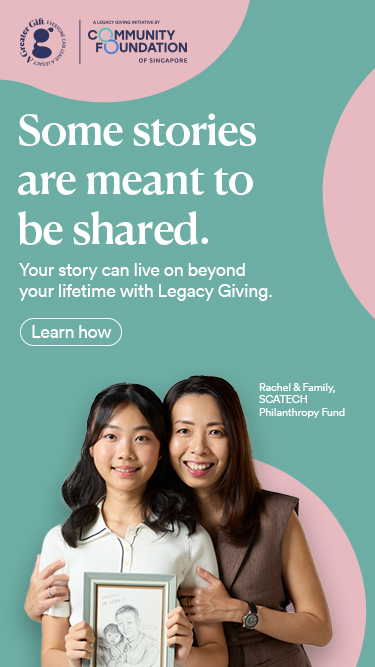SR Nathan Education Upliftment Fund (SRNEUF) continues to transform lives in its 10th year


Former President of Singapore, the late SR Nathan established the SR Nathan Education Upliftment Fund (SRNEUF) in 2011 to provide financial assistance to students, ensuring that they remain in school and are able to further their higher education.
Managed by CFS, the fund supports programmes such as the Monthly Financial Assistance Scheme (MFAS) by ITE, which gives allowance to underprivileged students for their transportation needs and meals, reducing their financial burden/challenges so that they can focus on their studies.
Now in its 10th anniversary, SR Nathan’s legacy continues in its transformation of students’ lives. Berita Harian highlights the stories of two students who have benefitted from the SRNEUF.
The first story recounts the experience of Arshad Supa’at, 33 years old, who had enrolled in the Higher Nitec course in Business Studies in ITE Central College after completing his National Service. Due to suffering from a road accident while working as a part-time food deliveryman, he had trouble with taking care of his expenses since his family was financially burdened. In the article, he quoted how the SRNEUF was very helpful in providing assistance to him, as it helped him to focus on his studies without worrying about his school expenses and daily life.
The second story shone a spotlight on Danish Said, 25 years old, whose family has often faced financial problems as both of his parents have chronic health problems which require medical attention. Danish quoted how the SRNEUF has provided him the opportunity to focus more on his studies, since he only needs to work part-time as a food deliveryman on the weekends to help cover his own daily expenses. He also explained how the monthly allowance given by the SRNEUF has helped him with his finances, making sure his parents do not have to bear his expenses.
To make an impact with your giving, read more about it here.
This translated extract was originally published by Berita Harian. Please click here for the original feature on the student beneficiaries, Danish and Arshad.
Credit: Berita Harian © Singapore Press Holdings Limited. Permission required for reproduction.
Former President of Singapore, the late SR Nathan established the SR Nathan Education Upliftment Fund (SRNEUF) in 2011 to provide financial assistance to students, ensuring that they remain in school and are able to further their higher education.
Managed by CFS, the fund supports programmes such as the Monthly Financial Assistance Scheme (MFAS) by ITE, which gives allowance to underprivileged students for their transportation needs and meals, reducing their financial burden/challenges so that they can focus on their studies.
Now in its 10th anniversary, SR Nathan’s legacy continues in its transformation of students’ lives. Berita Harian highlights the stories of two students who have benefitted from the SRNEUF.
The first story recounts the experience of Arshad Supa’at, 33 years old, who had enrolled in the Higher Nitec course in Business Studies in ITE Central College after completing his National Service. Due to suffering from a road accident while working as a part-time food deliveryman, he had trouble with taking care of his expenses since his family was financially burdened. In the article, he quoted how the SRNEUF was very helpful in providing assistance to him, as it helped him to focus on his studies without worrying about his school expenses and daily life.
The second story shone a spotlight on Danish Said, 25 years old, whose family has often faced financial problems as both of his parents have chronic health problems which require medical attention. Danish quoted how the SRNEUF has provided him the opportunity to focus more on his studies, since he only needs to work part-time as a food deliveryman on the weekends to help cover his own daily expenses. He also explained how the monthly allowance given by the SRNEUF has helped him with his finances, making sure his parents do not have to bear his expenses.
To make an impact with your giving, read more about it here.
This translated extract was originally published by Berita Harian. Please click here for the original feature on the student beneficiaries, Danish and Arshad.
Credit: Berita Harian © Singapore Press Holdings Limited. Permission required for reproduction.
- Related Topics For You: ACCESSING QUALITY EDUCATION, CHARITY STORIES, DONOR STORIES, DONOR-ADVISED FUND, EDUCATION, FAMILIES, NEWS, STORIES OF IMPACT, YOUTH

.jpg)



